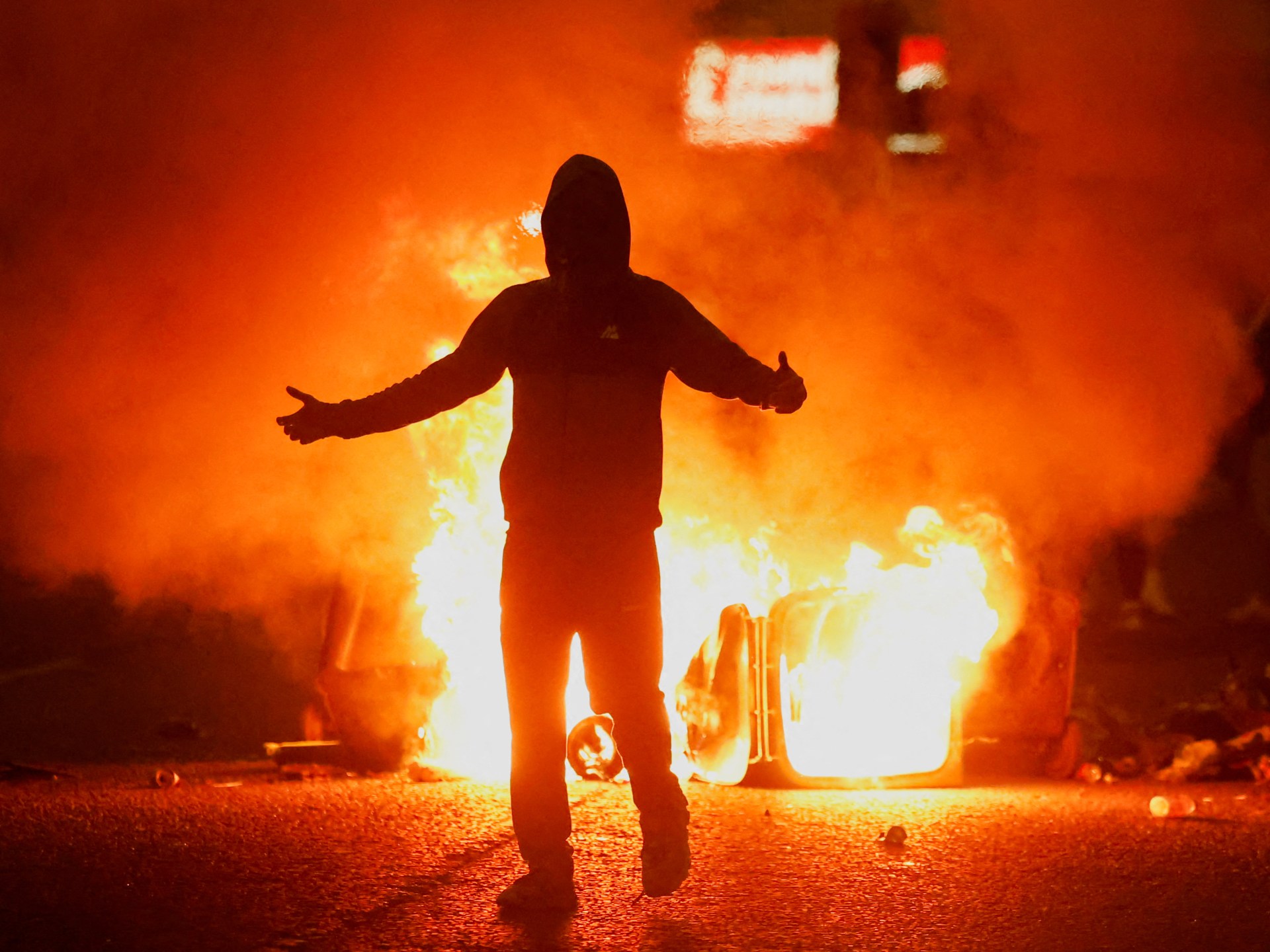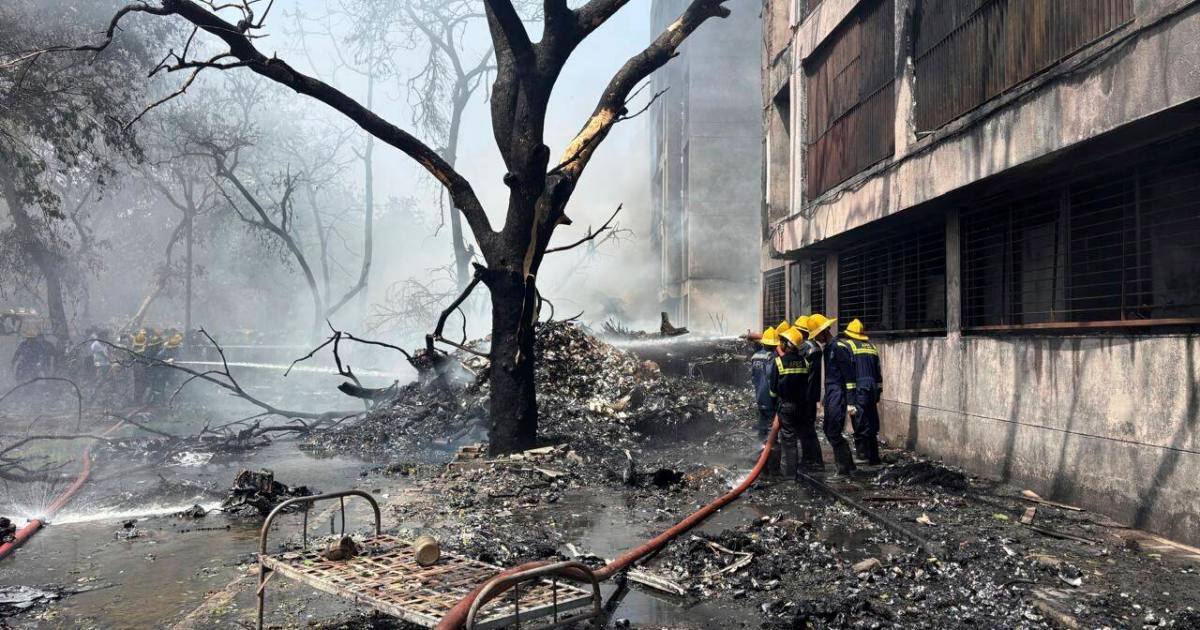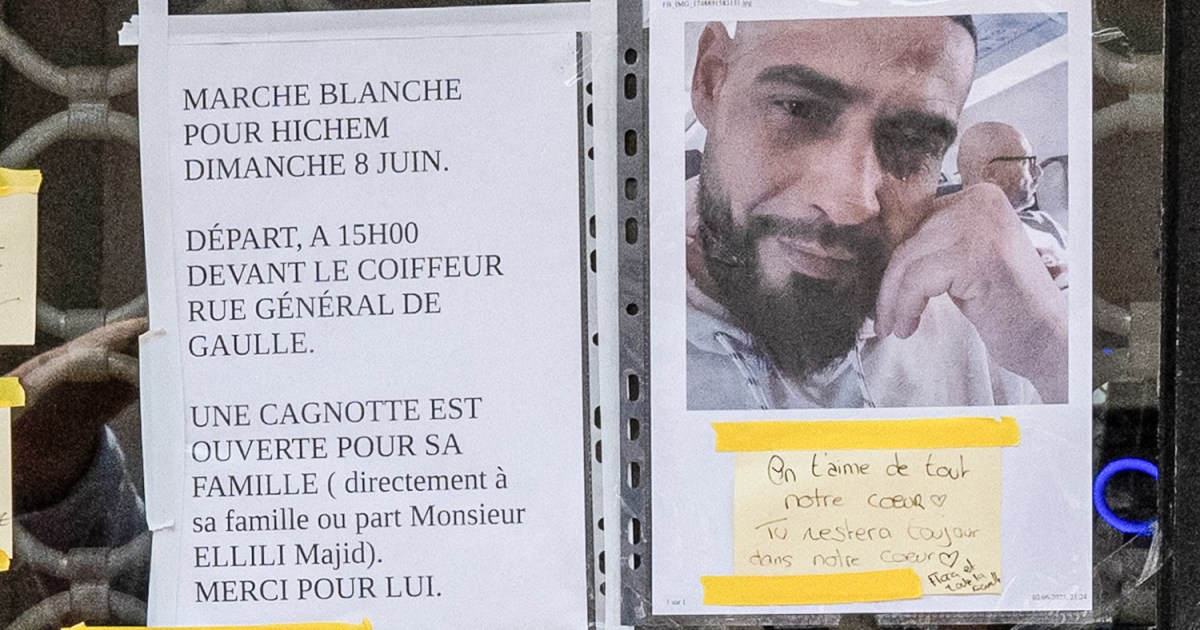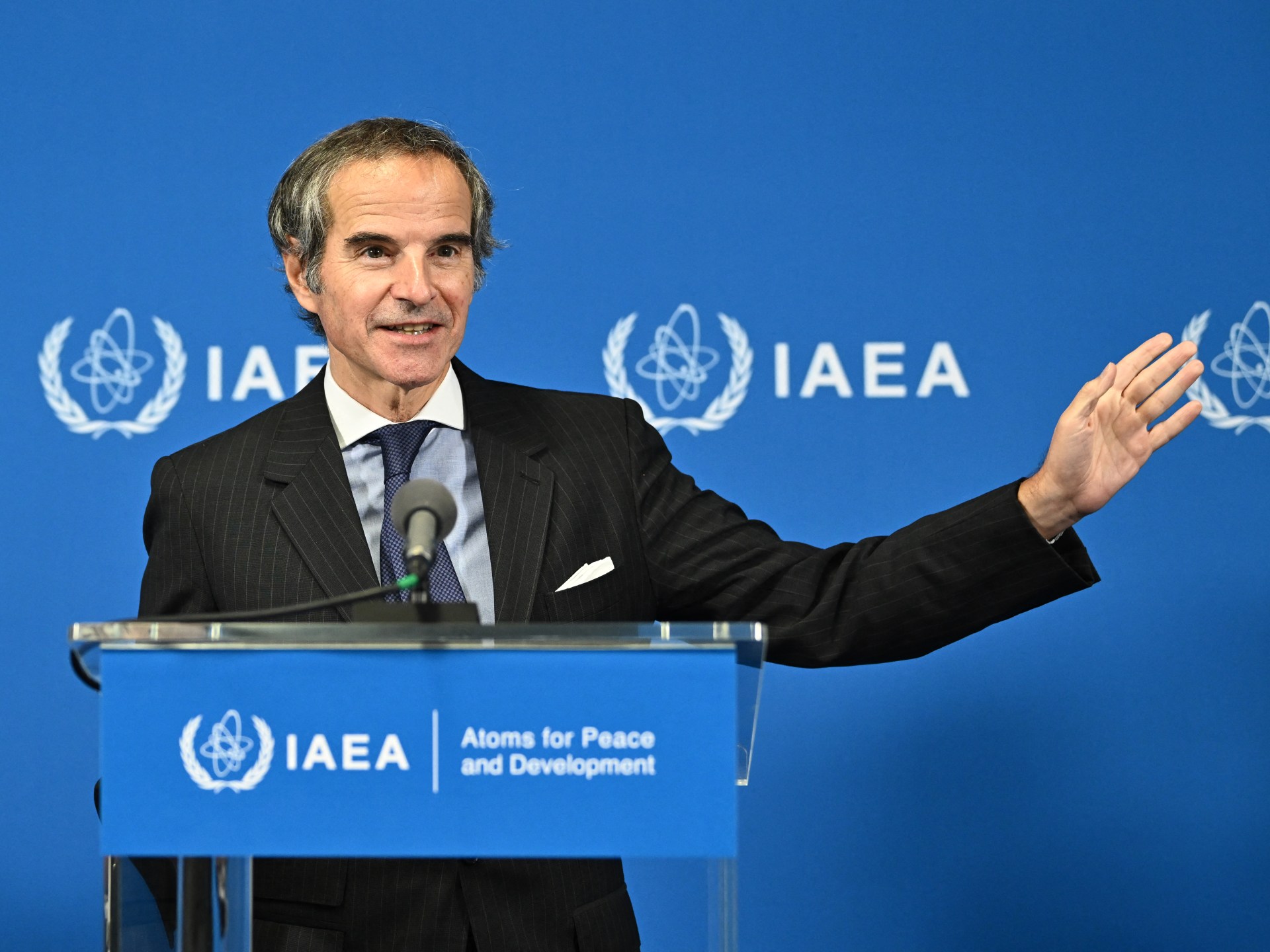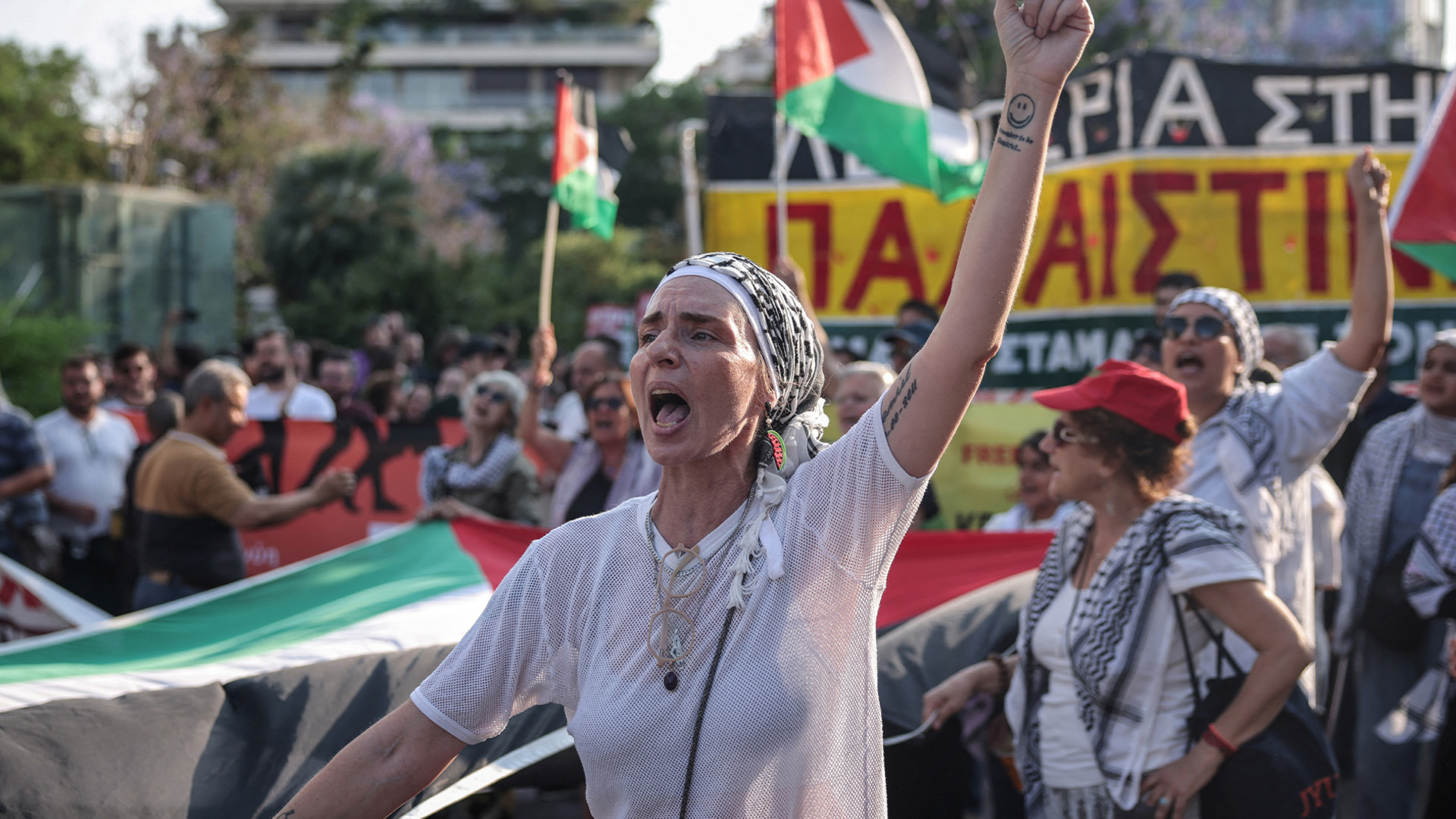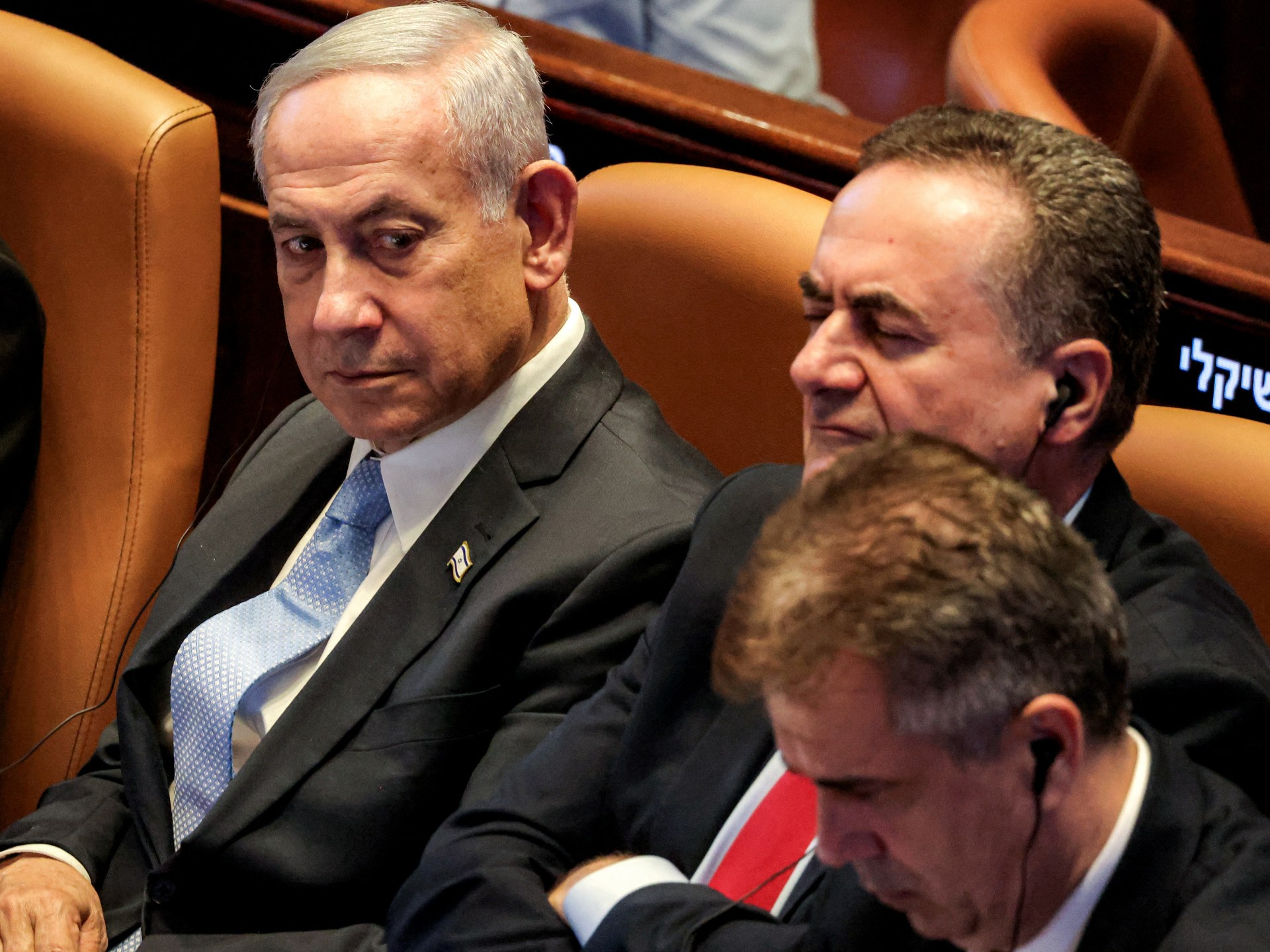On May 31, a Saturday, Hichem Miraoui was at his home in southeastern France on a video call with his sister Hanen, who lives nearby, and his mother in Tunisia.
It was late morning in Puget-sur-Argens, his village near the French Riviera.
Suddenly, Hanen heard him exclaim. The phone then dropped to the floor and the line went silent.
Two hours later, Mouna Miraoui, his cousin, was at the Draguignan police station a few kilometres north, identifying his body.
Miraoui had been shot five times and killed in what French investigators – in a first – are identifying as a possibly racially motivated act of domestic terrorism.
“It’s a living hell, it’s unbearable,” Mouna told Al Jazeera by phone. “It was a shock for everyone. His sister fainted. Imagine if that day I had been invited to his house for dinner or a drink. I have young kids, what would have happened then?”
French investigators have opened a terrorism investigation in the murder case in which another victim was injured. A man identified as Christophe Belgembe has been arrested.
The suspect regularly reposted content from France’s far-right National Rally party. He has admitted to shooting Miraoui but pleaded not guilty to the racially motivated nature of the crime.
In several videos uploaded to Facebook, which have since been deleted, the suspect appeared to have congratulated himself for “getting rid of 2-3 pieces of junk”, the French news site 20 Minutes reported. According to one of Miraoui’s sisters, Belgembe was well known among residents for his xenophobic views, in particular a “hatred of Arabs”.
Family members have told various media outlets that Miraoui, who was in his forties, had felt increasingly threatened by Belgembe, the legal owner of several guns as a member of a shooting sports club, in the days and weeks leading up to the alleged murder.
A hairdresser who was close to his five sisters, Miraoui had been planning to return to Tunisia to visit his sick mother for the first time in eight years.
The alleged murder led to protests across France and brought to light what antiracism groups are calling an “ambient climate” of anti-Arab hate and xenophobia.
Between January and March of 2025, 79 Islamophobic hate crimes took place across France, an increase of more than 70 percent relevant to that same period in 2024, according to the latest statistics from France’s interior minister.
On Sunday, several thousand people gathered in the southern French city of Marseille and Miraoui’s hometown to protest against rising hate crimes, raising signs reading “racism has killed again” and “rest in peace, Hichem”.
“Hichem’s death is the fruit of an increasingly hardline atmosphere that has been rising for several months and years and that sets in a bit more every day,” the family’s lawyer, Mourad Battikh, said in a statement.
Over the past year, three men have been killed in what appear to be racially motivated hate crimes but Miraoui’s is the first to be investigated by the National Anti-Terrorism Prosecutor’s Office, or PNAT.
According to Zelie Heran, legal head of the antiracism watchdog SOS Racisme, the opening of a terrorism investigation means more resources and a potentially fast-tracked trial. She questioned why the PNAT had not been activated in other similar and recent cases.
“While we can certainly commend the [PNAT] for taking up this case because it is a case where there is a desire to disrupt public order and spread terror on the part of this person who encouraged others to kill foreigners, we can still be surprised and critical of the fact that this is the first time [they] have taken up this type of case,” said Heran.
She suggested that French politicians, including Interior Minister Bruno Retailleau, have allowed a hateful climate to fester.
Retailleau has previously repeated debunked claims about being “flooded” by migrants and recently introduced a law to ban headscarves from public universities.
This “obsession with Islam and foreigners has translated into actions by the population”, including the snatching of headscarves from women’s heads and verbal abuse, Heran said.
Statistics shared with Al Jazeera support these claims.
In the first five months of 2025, SOS Racisme documented a 44 percent increase in calls to its anti-discrimination hotline compared with the same period a year ago.
This rise is even sharper regarding anti-Arab and Islamophobic incidents, which have increased by 68 percent year on year.
In some incidents, callers have described damage to property, including at mosques. In more urgent cases, physical violence has been reported.
In April, Aboubakar Cisse, a Malian man in his early twenties, was stabbed 57 times as he prepared his mosque for prayer in La Grand-Combe, also in southern France.
Though the attacker allegedly voiced a statement deemed incredibly offensive to Muslims as he killed Cisse, the crime is not being investigated as an act of terrorism but as a race-based assassination.
The killing of Cisse followed the August 2024 murder of Djamel Bendjaballah, a Tunisian man who was run over by the driver of an SUV in a crime his family has tried, unsuccessfully, to qualify as a hate crime. The suspect was a member of a far-right survivalist group and the ex-husband of Bendjaballah’s partner.
On Wednesday, the body of Hichem Miraoui was returned to Tunisia – tragically reuniting him with his ailing mother.
Mouna Miraoui hopes that his death will be a catalyst for change. She wears a headscarf and said that she no longer feels safe in France.
“I get the feeling that there’s a generalised hatred that’s building,” she told Al Jazeera. “We expect justice to be done. We expect this man’s conviction to set an example for everyone, so that people don’t think this is normal and trivialise it.”
